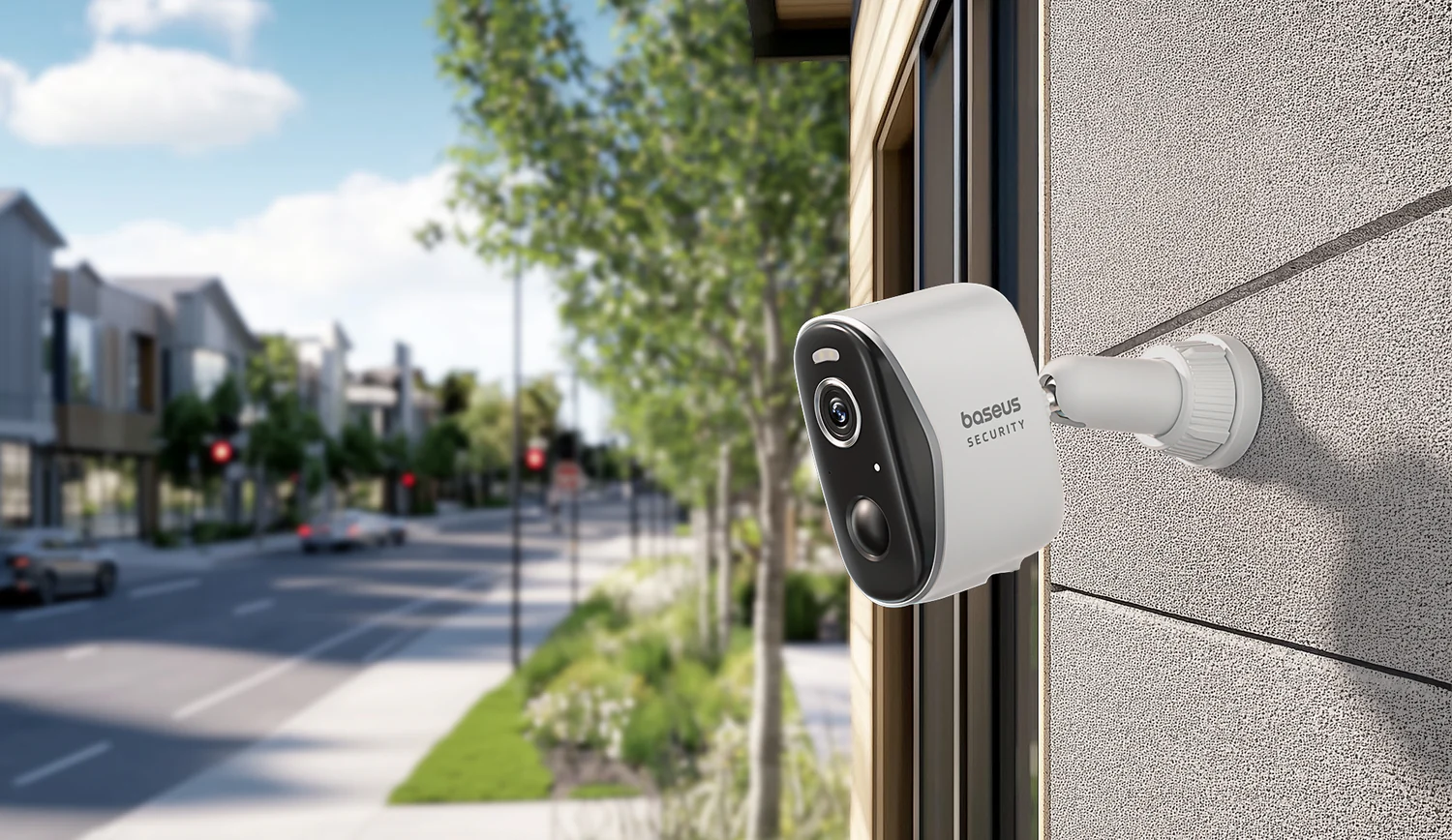When it comes to home security, choosing between wired vs wireless security cameras is a critical decision. Both options offer unique advantages, and understanding their differences can help you select the system that best fits your needs. At Baseus Security, our motto is Privacy First. Reliable Always., and we’re here to guide you through this choice to ensure your home remains secure.
Wired Security Cameras: Stability and Consistency
Wired security cameras are connected directly to a power source and recording device via cables, typically Ethernet or coaxial. This setup ensures a stable and reliable connection, making them a popular choice for homeowners prioritizing dependability.
One of the primary benefits of wired cameras is their uninterrupted power supply. Unlike wireless models, they don’t rely on batteries, eliminating the need for frequent recharging or replacements. This makes them ideal for long-term, continuous monitoring. Additionally, wired systems often deliver higher-quality video feeds due to their direct connection, which isn’t susceptible to Wi-Fi interference or signal drops. For large properties or areas with poor wireless connectivity, wired cameras provide consistent performance.
However, installation can be a drawback. Wired systems require professional setup in many cases, as cables must be run through walls or ceilings. This can increase initial costs and make relocation challenging. Despite this, for those seeking a robust, tamper-resistant solution, wired cameras align perfectly with Baseus Security’s commitment to reliability.
Wireless Security Cameras: Flexibility and Convenience
Wireless security cameras, on the other hand, offer unmatched flexibility. Operating via Wi-Fi, these cameras transmit data wirelessly, making them easier to install and move as needed. For renters or homeowners who prefer a DIY approach, wireless cameras are a hassle-free option, requiring minimal setup—often just a power outlet and a stable Wi-Fi connection.
The portability of wireless cameras makes them ideal for dynamic environments. You can reposition them easily to monitor different areas, such as a front yard or a nursery. Many models, like those offered by Baseus Security, come with advanced features such as motion detection, night vision, and cloud storage, ensuring privacy and functionality. Battery-powered options further enhance flexibility, allowing placement in areas without accessible power sources.
However, wireless cameras depend heavily on Wi-Fi strength. A weak signal can lead to laggy footage or connectivity issues. Battery-powered models also require regular maintenance, which can be inconvenient. Security-conscious users should ensure their Wi-Fi network is encrypted to prevent unauthorized access, aligning with Baseus Security’s Privacy First ethos.
Making the Right Choice
Choosing between wired vs wireless security cameras depends on your priorities. If reliability and consistent performance are paramount, wired cameras are the better option, especially for permanent installations. If flexibility, ease of installation, and modern features are more important, wireless cameras are likely the way to go.
At Baseus Security, we prioritize both privacy and reliability. Our range of wired and wireless cameras is designed to meet diverse needs, ensuring your home is protected without compromising on quality. Consider your property’s layout, Wi-Fi strength, and long-term goals when deciding. With Baseus Security, you’re choosing Privacy First. Reliable Always.










Leave a Reply